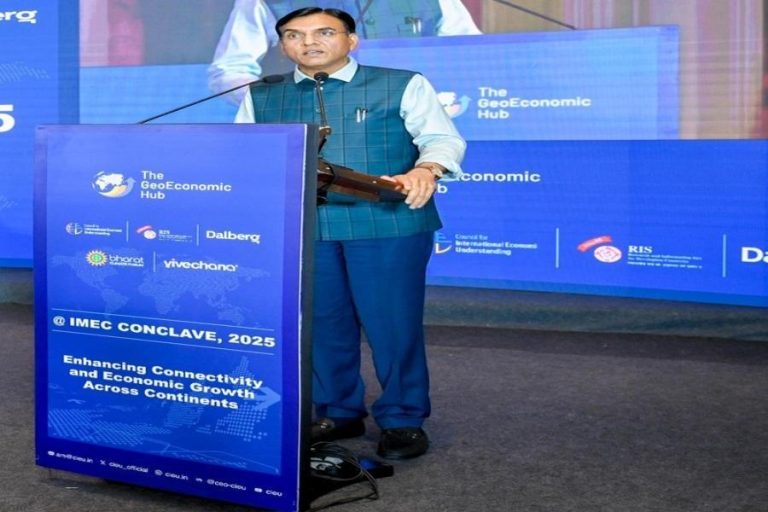
S&P tumbles 6% as global sell-off jolts Indian markets
The global financial markets witnessed a sudden and sharp correction on Tuesday, with the S&P 500 plunging a staggering 6% – its worst day since March 2020. The US markets’ sudden sell-off had a ripple effect worldwide, triggering a global rout that sent Indian indices tumbling. The Sensex suffered a massive loss of over 2,200 points, while the Nifty 50 declined by over 650 points.
The sudden downturn in the global markets has raised concerns about a possible recession, with investors scrambling to adjust their portfolios. The IT and pharma sectors, among the most prominent in the Indian economy, were severely impacted, with stocks of top companies like TCS, Infosys, and Dr. Reddy’s Laboratories plummeting.
The global sell-off was triggered by a series of events, including concerns about the US Federal Reserve’s aggressive interest rate hikes, inflationary pressures, and the ongoing Russia-Ukraine conflict. The Fed’s recent decision to raise interest rates by 75 basis points to combat inflation has put pressure on the global economy, leading to fears of a potential recession.
The S&P 500’s 6% decline marked its worst day since March 2020, when the pandemic was spreading rapidly across the globe. The index has now fallen by over 10% from its recent high, indicating a bear market. The Nasdaq, which has been a bellwether for the tech sector, dropped to bear territory, with many investors predicting further volatility in the days to come.
Indian markets, which have been riding high on the back of a strong economic recovery, were not immune to the global sell-off. The Sensex and the Nifty 50 both opened lower and continued to decline throughout the day, with the Sensex eventually closing at 57,479.25 and the Nifty 50 at 17,115.80.
The IT sector, which has been a major driver of the Indian economy, was particularly hard hit, with stocks of companies like TCS, Infosys, and HCL Technologies declining by up to 6%. The pharma sector, which has been a bright spot in recent times, also suffered, with stocks of companies like Dr. Reddy’s Laboratories and Sun Pharmaceutical Industries falling by up to 5%.
The decline in Indian markets was attributed to a combination of factors, including the global sell-off, concerns about the domestic economy, and the ongoing Russia-Ukraine conflict. The conflict has led to a spike in global commodity prices, including oil, which has put pressure on the Indian economy.
The Indian government has been working to mitigate the impact of the global sell-off on the domestic economy, with the Reserve Bank of India (RBI) announcing a slew of measures to boost economic growth. The RBI has cut interest rates to stimulate lending, increased the foreign exchange reserves, and implemented policies to boost exports.
Despite the challenges posed by the global sell-off, Indian markets have shown remarkable resilience in recent times. The Sensex and the Nifty 50 have both rallied strongly in recent months, driven by a combination of factors including the government’s reforms, a strong economic recovery, and a surge in foreign investment.
However, the recent sell-off has raised concerns about the sustainability of the Indian economic recovery. The country’s economy has been growing at a steady pace in recent times, driven by a strong rebound in consumer spending, a surge in exports, and an improvement in the manufacturing sector.
The government has been working to address the challenges posed by the global sell-off, including implementing policies to boost economic growth, reducing inflation, and improving the business environment. The government has also been working to increase foreign investment, including implementing policies to attract foreign direct investment (FDI) and promoting exports.
In conclusion, the global sell-off has sent shockwaves across the Indian markets, with the Sensex and the Nifty 50 suffering significant losses. The IT and pharma sectors were particularly hard hit, with stocks of top companies declining by up to 6%. The government has been working to mitigate the impact of the global sell-off on the domestic economy, including implementing policies to boost economic growth, reduce inflation, and improve the business environment.
As the global markets continue to grapple with the challenges posed by the sell-off, investors are bracing for continued volatility in the days to come. The Indian government has shown remarkable resilience in recent times, and it is likely to continue to work towards promoting economic growth and stability in the face of global challenges.
News Source:
https://www.thecore.in/podcasts/us-stocks-whacked-for-the-third-day-833088






